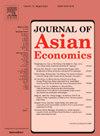外资撤资的生产力溢出效应:来自中国工业企业的证据
IF 2.9
3区 经济学
Q1 ECONOMICS
引用次数: 0
摘要
中国的外资撤资问题日益受到社会关注。本研究基于 2000 年至 2007 年的中国工业企业数据,探讨了外资撤资的生产率溢出效应。我们的研究结果表明,外资撤资会对在位企业的全要素生产率(TFP)产生负面影响,尤其是通过后向联系。我们根据撤资企业和在位企业的特点研究了其潜在机制。外商投资企业的倒闭破坏了产业联系,而将外资股权出售给国内股东则加强了当地的产业联系,从而产生了相反的效果。港澳台投资企业倾向于本地采购,通过后向联系产生撤资效应。相反,非港澳台企业提供差异化中间产品的能力较强,主要表现为前向联系效应。进一步的分析表明,技术能力较低的在位企业更依赖于外国供应商和客户。国内非国有企业以及经济发展水平或市场化水平较低地区的非国有企业的投入产出关系也不太稳定。因此,这些企业更容易受到外资撤出的纵向溢出效应的影响。本文章由计算机程序翻译,如有差异,请以英文原文为准。
The productivity spillover effect of foreign divestment: Evidence from Chinese industrial enterprises
Foreign divestment in China is garnering increasing social attention. This study investigates the productivity spillover effects of foreign divestment based on Chinese industrial enterprise data from 2000 to 2007. Our findings indicate that foreign divestment negatively impacts the total factor productivity (TFP) of incumbent enterprises, especially through backward linkages. We examine potential mechanisms based on the characteristics of divested and incumbent enterprises. The closure of foreign-invested enterprise disrupts industrial connections, whereas the sale of foreign equity to domestic shareholders strengthens local industrial linkages, thus presenting an opposite effect. Hong Kong, Macau, and Taiwan (HMT)-invested enterprises tend to local sourcing, leading to divestment effects through backward linkages. Conversely, non-HMT enterprises, with a higher capability to provide differentiated intermediate goods, primarily exhibit forward linkage effects. Further analysis reveals that incumbent enterprises with lower technological capabilities are more dependent on their foreign suppliers and customers. Domestic non-state-owned enterprises and those in regions with lower economic development or marketization levels also have less stable input-output relationships. As a result, these enterprises are more susceptible to the vertical spillover effects of foreign divestment.
求助全文
通过发布文献求助,成功后即可免费获取论文全文。
去求助
来源期刊

Journal of Asian Economics
ECONOMICS-
CiteScore
4.70
自引率
9.40%
发文量
90
期刊介绍:
The Journal of Asian Economics provides a forum for publication of increasingly growing research in Asian economic studies and a unique forum for continental Asian economic studies with focus on (i) special studies in adaptive innovation paradigms in Asian economic regimes, (ii) studies relative to unique dimensions of Asian economic development paradigm, as they are investigated by researchers, (iii) comparative studies of development paradigms in other developing continents, Latin America and Africa, (iv) the emerging new pattern of comparative advantages between Asian countries and the United States and North America.
 求助内容:
求助内容: 应助结果提醒方式:
应助结果提醒方式:


